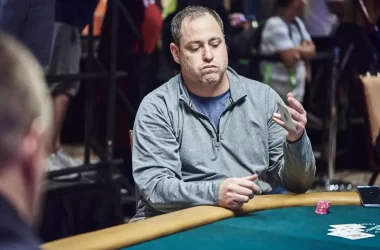Finally, San Miguel points out that poker is a game of chance. You need only understand your odds to make wiser decisions. If you can read your adversary, great. But your analysis of their odds of success in winning hands can only be improved by statistics and probabiltiy.
Poker Probabilities are the key to making good decisions in Poker. You need not only knowledge about probabilities of starting hands but we also have to have correct calculations regarding pot odds and expectations of value at every moment of the game.
Basic principles
All of these are part of the journey of mathematical analysis: poker embrace probability, and a reliable grasp of it is essential. Evaluating chances is also part of the experience.Learning probability, assessing odds of something happening, computing ratios such as in mathematics classes, estimating pot ratio or equity measures … these are all the same – probability calculates likelihoods of things happening and is expressed as a ratio.
From a 52-card deck, there are no two cards more likely to be drawn than the other, and as a result there is an equal probability associated with each card, which by definition is the mechanics of calculating the probability of any given hand drawn from it. To illustrate, when calculating the probability of any given hand, add up all its odds of being drawn against the total remaining cards in this order of multiplication; it’s the quintessence of poker hand probability calculation.
Poker is all about calculation, too; figuring out what your opponent might have – how much bet will persuade him or her to call; also, what they think your hand is worth in comparison with theirs.
Betting intervals
When poker betting intervals are given, it means that after each round of play except the last, the game specifies how much you can bet and how much you have to send to the pot as the minimum and maximum respectively. These are the key elements of a simple Texas Hold’em game, and a good player should strive to mitigate losses when holding bad cards and enhance gains when holding good cards. It is tough when you have to make decisions based on incomplete information.
For example: You cannot know exactly what two-card hand your opponent might yet be able to make, but calculating implied odds can nevertheless estimate the size of the pot that might yet be won by him if he makes a good hand.
One of the first concepts that can make or break your game, and the real reason you need to be paying attention to odds, efficiency and numbers – both in poker and in life – is poker odds. Knowing your pot odds and pot-equity – the statistics that tables those decisions – will give you the statistical formula to decide if you are ahead or behind. It will never tell you why your opponent plays the way he does – and it will never tell you whether to call or not.
Limits
However much effort you put into playing poker, a significant degree of skill and luck have to come into play for you to be successful. If you spend a lot of time developing your skill, you will start to understand the probabilities of different hands and situations. This will allow you to make better judgments at the table. The capacity to read your opponents skillfully, as well as working out your odds of winning particular hands are both integral parts of the recipe for a master poker player.
Even though your odds of making the particular hand may change from hand to hand, their long-term odds don’t – learning how to calculate poker odds can help improve your game.
The easiest way to make estimates of poker odds is to see how many cards on the table would help you, multiplying that by four. It won’t make your estimates of odds accurate, but it’s a simple rule of thumb This should give us an idea of how much value there is in your hand at that moment, and how much value is delivered after you call or raise the cards in question. Over a series of rounds and games, the probabilities of winning in poker will certainly increase once you master the art of probability theory.
Bluffing
Any good poker strategy encompasses knowing when to bluff and how to bluff, including decisions that are analytical (as in calculating the odds and equity in your favour) as well as more instinctive quick reasoning. Odds-versus-equity is a good strategy for bluffing – evaluations of pot odds (ie, what your next bet means in relation to the size of the pot) and equity (ie, the relative strengths of what you have in your hand versus that of your opponents) can help you determine confidently when and how to bluff.
It also helps you find the right way to use information on the likelihood of your opponent having a better hand in order to pull off a good bluff, as opposed to a lousy one. Just don’t come away with the wrong impression that you can always win; decent poker players know that luck has something to say about who wins at this game as well. The idea of bankroll management is important for longterm success; read more about poker bankroll management here.












